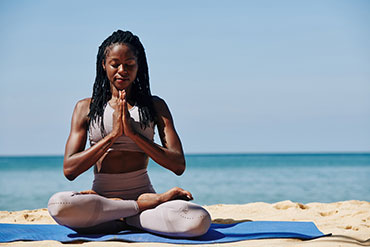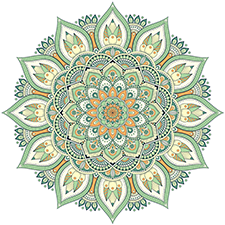Complementary and Alternative Medicine
Holistis Treatments for PTSD
 In scientific terms, stress is defined as the nonspecific response of the body to any demand made upon it. Even when it feels like stress originates in the mind, the body is responding to it. In psychotherapy as a form of stress and PTSD treatment, therapists often recommend various types of alternative medicine therapies.
In scientific terms, stress is defined as the nonspecific response of the body to any demand made upon it. Even when it feels like stress originates in the mind, the body is responding to it. In psychotherapy as a form of stress and PTSD treatment, therapists often recommend various types of alternative medicine therapies.
Stress-producing factors, or stressors, can be physical (exercise and injury), biological (viral, bacterial and fungal), environmental (heat and cold), situational (work and education), and relational (friends and family).
While there are numerous sources of stress, the responses they elicit from the body are very similar. Things like temperature, emotions, and injury cause identical biochemical reactions in the body.
When we feel stressed, our heartbeat, breathing rate and blood pressure all go up. The longer we’re pressured by stress, the greater the demand on the body. Prolonged stress can lead to a wide range of physiological complications and psychological difficulties.
Complementary and Alternative Therapies for Trauma
Many complementary and alternative therapies use mind-body medicine that focuses on the role of thoughts and emotions on physical health. These types of approaches can be especially beneficial for treating stress.
Techniques like biofeedback, relaxation training, tai chi, yoga, and meditation affect the nervous system in ways that can reduce the effects of stress and help people cope.
Massage therapy is one of the oldest known therapies for improving psychological and physiological function. Science has documented the stress-relieving benefits of all type of massage therapy. For many people, their place of employment is a stressful environment. A number of studies have found massage effective for relieving work-related stress.
 Whether practiced for spiritual reasons, relaxation, or for treatment of disease, meditation has been shown to be beneficial for stress reduction. There are many different types of meditation, including sitting, standing, and walking methods.
Whether practiced for spiritual reasons, relaxation, or for treatment of disease, meditation has been shown to be beneficial for stress reduction. There are many different types of meditation, including sitting, standing, and walking methods.
While reducing stress, meditation has also been shown to improve attention, reduce anxiety, enhance cognition, and improve quality of life throughout the lifespan.
Whereas stress is a fact of life, being stressed out is a choice. We don’t always have control over what happens to us, and yet, we don’t have to overreact to difficult, challenging situations by becoming frazzled, overwhelmed, or distraught. Being overly anxious and allowing stress to take over is not just a mental hazard, it’s a physical one.
Nutrition and Herbal Medicine
Two of most helpful therapies for stress and trauma are nutrition and herbal medicine. Stress can create chemical imbalances in the body that are often corrected with dietary adjustments, nutritional supplements, and/or herbal preparations.
Chronic can contribute to ongoing cycles of fatigue, poor nutrition, waves of exhaustion, mood swings, and hormonal imbalances. To deal with stress, many people find themselves overloading on caffeine, sugary snacks, alcohol, and even sleep aids to manage stress, all of which can disrupt our body’s normal rhythms.
Research shows that when we experience chronic stress, our adrenal glands, or the tiny glands that moderate the stress response as well as regulate other hormones, will suffer. Typically herbal and nutritional support are important for treating adrenal fatigue.
alternative medicine and natural remedies. I look forward to helping you to feel better and have a life unaffected by trauma.

San Jose PTSD Treatment in the Silicon Valley including San Jose, Los Gatos, Saratoga, Sunnyvale, Campbell, Cupertino, Los Altos, Mountain View, and Santa Clara.



